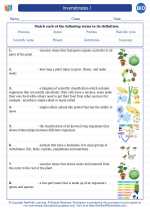Work in Biological Systems
In biology, work refers to the energy transfer that occurs in living organisms to carry out various functions such as movement, transport of molecules, and growth. Work is essential for the survival and functioning of all living organisms.
Types of Work in Biological Systems
- Mechanical Work: This type of work involves physical movement or mechanical processes in cells and organisms. For example, muscle contractions in animals and cell division in plants.
- Transport Work: This type of work involves the movement of molecules or ions across membranes within cells or throughout the organism. Examples include the transport of nutrients and waste products across cell membranes.
- Chemical Work: This type of work involves chemical reactions that require energy input to build or break down molecules. Examples include the synthesis of macromolecules such as proteins and the breakdown of nutrients for energy.
Energy for Biological Work
The primary source of energy for biological work is adenosine triphosphate (ATP), which is produced through cellular respiration. ATP provides the energy needed for cellular processes and is often referred to as the "energy currency" of the cell.
Study Guide
To effectively study the concept of work in biological systems, consider the following key points:
- Understand the different types of work (mechanical, transport, chemical) and their significance in living organisms.
- Learn about the role of ATP as the primary energy currency for biological work and its production through cellular respiration.
- Explore specific examples of biological work in different organisms, such as muscle contractions in animals and the transport of nutrients in plants.
- Study the relationship between energy transfer and work in biological systems, and how this contributes to the overall functioning of living organisms.
By mastering the concept of work in biological systems, you will gain a deeper understanding of the fundamental processes that drive life and the interconnectedness of energy transfer and biological functions.
[Work] Related Worksheets and Study Guides:
.◂Biology Worksheets and Study Guides High School. Invertebrates
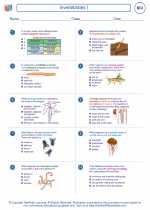
 Worksheet/Answer key
Worksheet/Answer key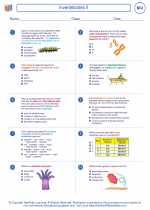
 Worksheet/Answer key
Worksheet/Answer key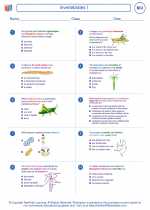
 Worksheet/Answer key
Worksheet/Answer key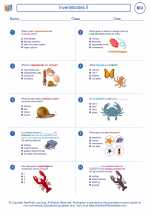
 Worksheet/Answer key
Worksheet/Answer key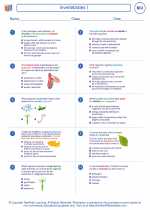
 Worksheet/Answer key
Worksheet/Answer key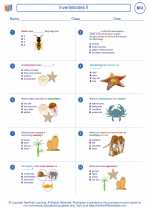
 Vocabulary/Answer key
Vocabulary/Answer key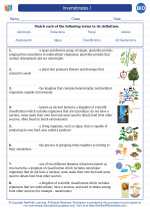
 Vocabulary/Answer key
Vocabulary/Answer key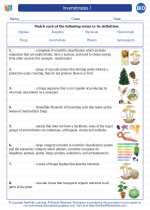
 Vocabulary/Answer key
Vocabulary/Answer key